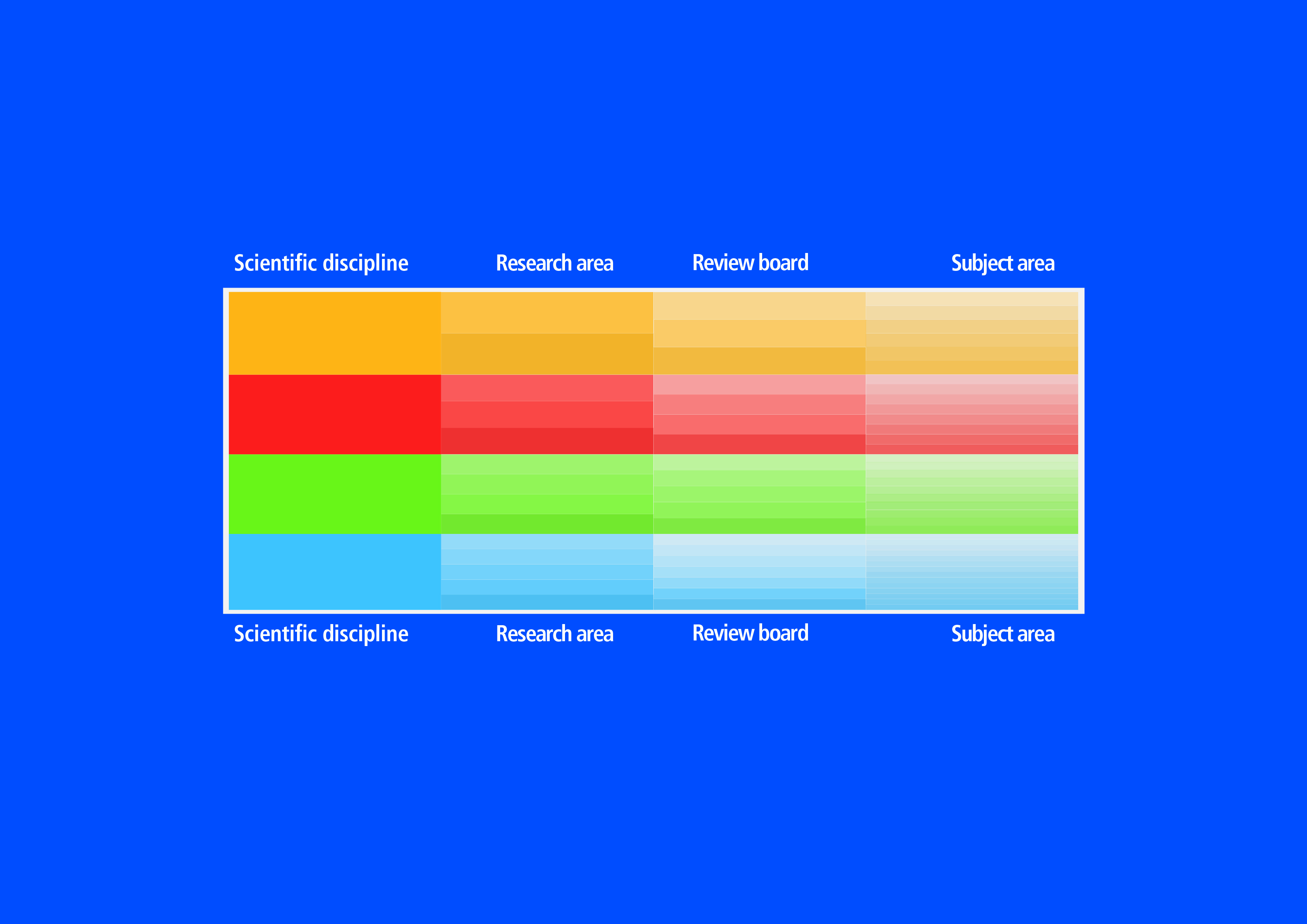The DFG subject area structure
Why does the DFG have a subject area structure?
The DFG uses its subject area structure to depict the entire scope and diversity of research areas, including interdisciplinary research approaches and fields of research. The DFG is a self-governing organisation, so it sees itself as an exemplar for science and the humanities, and for research communities.
The members of DFG statutory bodies imbue the wide range of subject areas and disciplines with life. The review board researchers selected by the communities contribute their individual research perspectives to the work of the DFG statutory bodies, as do the senators selected by the DFG General Assembly.
How is the DFG subject area structure formulated?

The DFG distinguishes between four scientific disciplines: humanities and social sciences, life sciences, natural sciences and engineering sciences. The DFG classification system subdivides these into research areas, which in turn are differentiated in the review boards. The review board(interner Link) cover a total of some 200 subject areas as well as their subdisciplines and subsections.
This structure also designates the path to follow to find the appropriate subject area for a proposal. Here you can find all subject areas at a glanc(Download).
How flexible is the subject area structure?
The Senate reviews the subject area structure and review board(interner Link) every four years to ensure that they reflect current conditions and developments and it adapts them as necessary as part of preparations for the election of review board members.
How is the subject area structure reflected in organisation of the DFG Head Office?
The DFG Head Office's Scientific Affairs Department is organised according to the basic structure of the subject areas and/or review boards. Please refer to the DFG Programme contact(interner Link) for the respective subject area or review board.